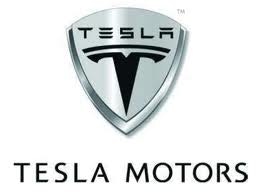The Growing Acceptance of Electric Vehicles
One of my favorite pastimes recently is to see just how efficiently I can drive my car. Throughout the summer I get 10 miles to the gallon more than the 43/40 miles per gallon that the window sticker advertised. But, that’s in a gas-electric hybrid. I wonder what I’d be able to do in an electric vehicle.
It took a few years before I decided to buy my hybrid. Somewhere in the back of my mind, I believed that hybrid cars would fall through the cracks of history like the Betamax and Laserdisc, leaving me stuck with a vehicle, which no one would be able to service.
There were some green reasons I bought my hybrid — both environmental shades and cash shades. But, regardless of one’s opinions on the source of global warming, the value of carbon credits, or the importance of recycling, everyone likes to save money and feel more secure.
I think that electric vehicles (EVs) are poised to satisfy both of those interests.
People are getting charged up
The subject of EVs is becoming an increasing part of the national conversation. Motor Trend named the Tesla Motors Model S as the 2013 Car of the Year, and Mayor Michael Bloomberg, in a recent State of the City address, announced plans for creating 10,000 public parking spots (charging stations) for electric vehicles over the next 7 years. To put that in perspective, there are currently about 15, 989 non-residential charging outlets nationwide.
In addition to the high price tag of EVs (which is consistently dropping), many people are hesitant to buy the cars for fear of running out of charge during a trip. This issue caused a firestorm in the media when a NY Times reporter revealed that he suffered from this problem on a recent test drive. Elon Musk, Tesla Motors Inc (NASDAQ:TSLA)’s CEO, retaliated on Twitter, which prompted another article from the reporter, which prompted another response from Musk, who is proving how sensitive he is to assuaging the public’s fears of EVs.
These “running out of charge” fears during a trip sound familiar.
It is reminiscent of people’s reluctance to embrace natural gas vehicles due to the few stations, which supply CNG or LNG. Many consumers want to wait for a greater number of stations to be built before they switch over, but companies are reluctant to build stations, which offer natural gas because there aren’t enough vehicles, which would make the endeavor profitable. Although this seems to be a stalemate, with only 1,197 CNG stations nationwide and 66 LNG stations, it doesn’t seem like it will remain a stalemate.
This chick and egg dilemma is being successfully handled by Clean Energy Fuels Corp (NASDAQ:CLNE) which is remedying this issue by developing America’s Natural Gas Highway — a network of stations strategically located along inter-state trucking routes. Currently, this comprises about 70 stations, of which Clean Energy saw a 25% increase in deliveries in 2012. In addition to this project, Clean Energy continues to form partnerships with state and city governments to assist with their growing, natural gas fleets.




